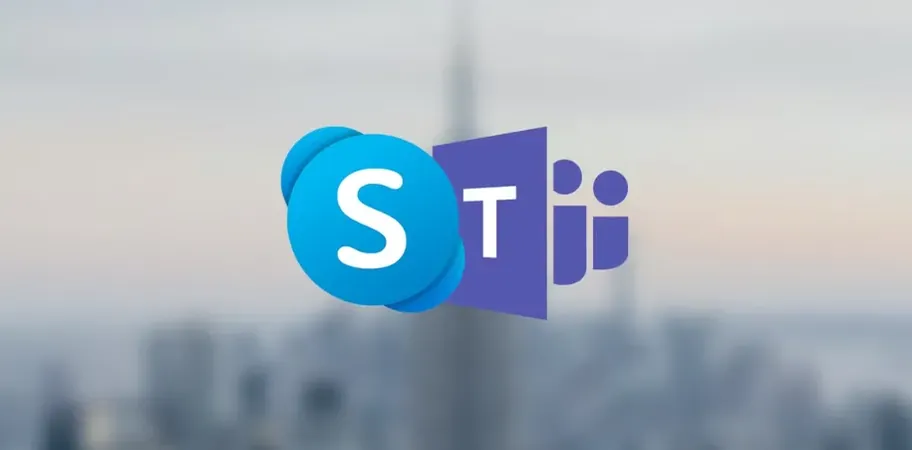
The End of an Era: Microsoft Shuts Down Skype After Over 20 Years
2025-05-05
Author: Amelia
In a historic move for digital communication, Microsoft has officially pulled the plug on Skype, the beloved video call platform that once ruled the online world. Launched in 2003, Skype transformed the way we connect, allowing users to make free international video and voice calls with just an internet connection.
The Rise and Fall of Skype
From its humble beginnings with just 20 testers, Skype ignited a revolution in online communication, amassing over 10,000 downloads on its first day. By 2007, it boasted a staggering 400 million users. Recognizing its potential, Microsoft acquired the platform in 2011 for a whopping $8.5 billion.
Skype became so ubiquitous that "to Skype" entered the lexicon, symbolizing its dominance in the VoIP market. However, as the landscape evolved and mobile messaging apps like WhatsApp and video conferencing platforms like Zoom took center stage, Skype struggled to maintain its relevance. Microsoft gradually shifted its focus to Teams, the new powerhouse of workplace communication.
Why the Sudden Shutdown?
The announcement to retire Skype came earlier this year in February 2025, as Microsoft aims to streamline its communication tools and direct users towards Teams, which currently serves over 320 million users worldwide. With Skype credits no longer available for sale, the final farewell was marked on May 5, 2025.
This decision affects all Skype users, both free and paid, but for now, Skype for Business remains operational.
What Lies Ahead for Users?
Current Skype users can still log in to Teams, where their chat histories and contacts are accessible. However, for those who prefer to keep their Skype data, there's a deadline: users must export their information by January 2026, after which it will be permanently deleted.
Exploring Alternatives
If you're searching for new platforms, the market is filled with alternatives. Zoom and Google Meet lead the pack, but apps like WhatsApp, FaceTime, Telegram, and Viber are also great options.
Farewell, Skype. While not everyone will miss you, your impact on the way we connect will certainly be felt for years to come.









 Brasil (PT)
Brasil (PT)
 Canada (EN)
Canada (EN)
 Chile (ES)
Chile (ES)
 Česko (CS)
Česko (CS)
 대한민국 (KO)
대한민국 (KO)
 España (ES)
España (ES)
 France (FR)
France (FR)
 Hong Kong (EN)
Hong Kong (EN)
 Italia (IT)
Italia (IT)
 日本 (JA)
日本 (JA)
 Magyarország (HU)
Magyarország (HU)
 Norge (NO)
Norge (NO)
 Polska (PL)
Polska (PL)
 Schweiz (DE)
Schweiz (DE)
 Singapore (EN)
Singapore (EN)
 Sverige (SV)
Sverige (SV)
 Suomi (FI)
Suomi (FI)
 Türkiye (TR)
Türkiye (TR)
 الإمارات العربية المتحدة (AR)
الإمارات العربية المتحدة (AR)